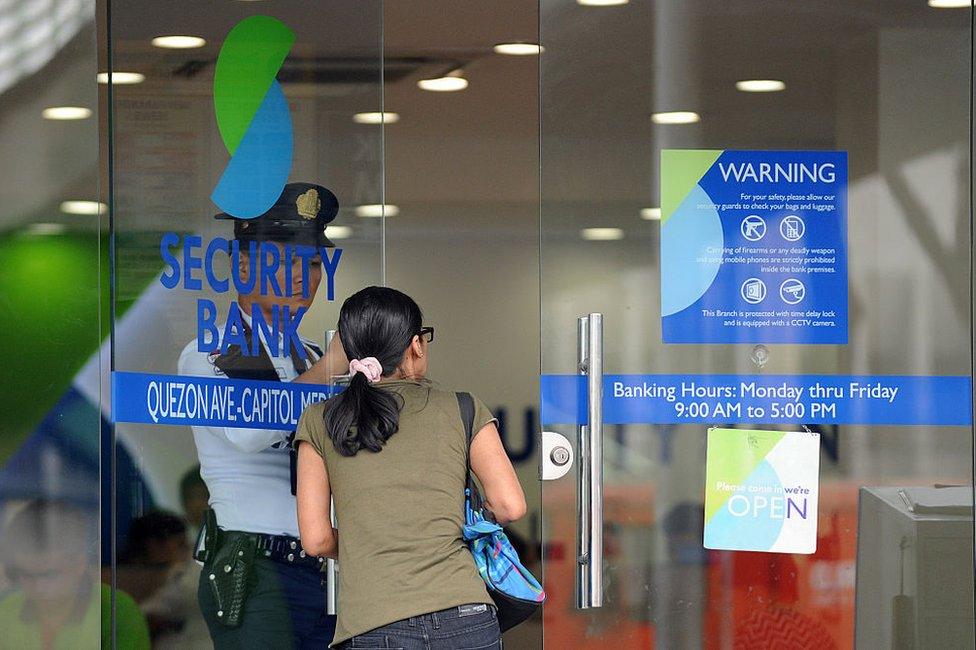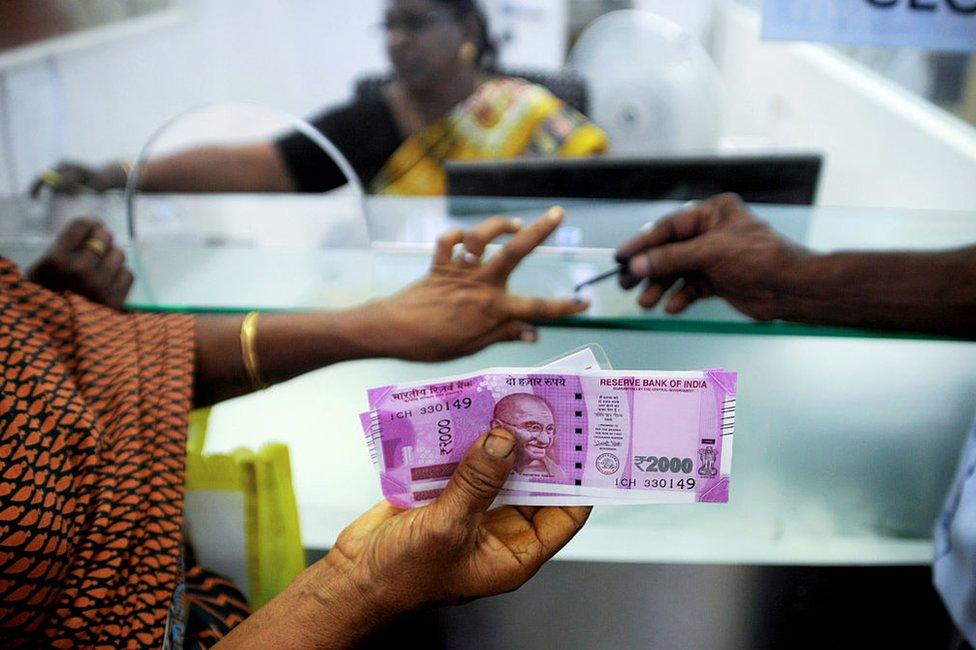The countries where women have more bank accounts than men
- Published

Women have accounts in Philippines to remit money and manage household finances
There are just six countries in the world where more women than men have bank accounts - Argentina, Georgia, Indonesia, Laos, Mongolia, and the Philippines.
This according to the World Bank's latest Global Findex report on how adults in more than 140 countries access accounts, make payments, save, borrow and manage risk. More than 500 million adults - or 69% of the adults, up from 51% in 2011 - have a "bank account" at a brick-and-mortar bank or a mobile money provider today.
But women, according to the report, continue to lag behind men: 65% of them have an account compared to 72% of men, a gap of seven percentage points that has remained unchanged since 2011.
This is despite the shrinking of the gender gap in many countries. In India, for example, 83% of men and 77% of women have a bank account - the gender gap in India has declined to 6 percentage points from 20 in 2014.
So how are these six disparate countries in Europe, South America and Asia bucking the gender trend? Leora Klapper, lead economist at the World Bank, offers some clues.
In the case of the Philippines, Dr Klapper told me, women are more likely to work overseas and have accounts so that they can remit money and manage household finances back home.
In all the six countries (with the exception of Laos) women are significantly more likely than men to receive a payment in the form of cash transfers as part of a government programme. In Mongolia, for example, 43% of women report receiving such a payment, as compared to 24% of men.

More than half of women's bank accounts in India are inactive
In Indonesia, there is no significant gender gap in "active" accounts or those accounts that are used at least once in the past year to make a deposit or withdrawal.
In other words, women might be more likely to have, at some point, received a payment from a government programme into their account, but after the payments end, they stop using their account for other purposes.
But there's a catch. With the exception of the Philippines, there is no country where women are more likely than men to have an "active" account.
India, for example, has managed to slash the gender gap in opening accounts, but more than half of the accounts that belong to women are dormant.
"So the hard challenge in India is designing financial products that women will use," says Dr Klapper.
- Published28 February 2013
- Published12 November 2016